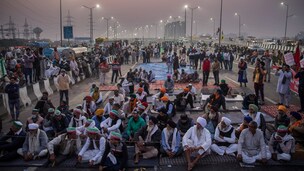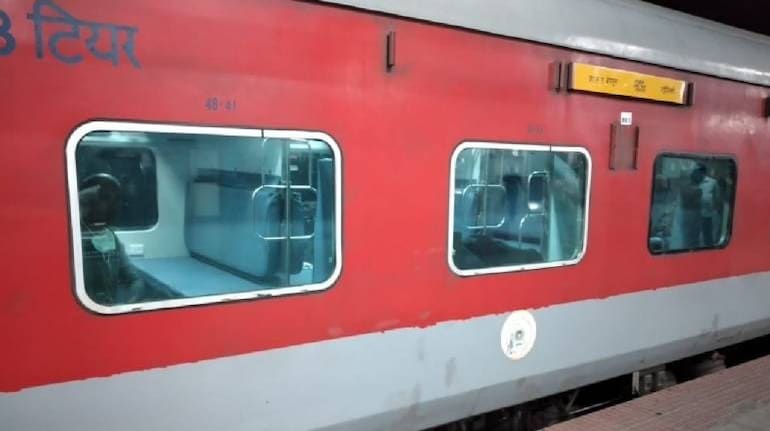Uttar Pradesh | Shramik Special train: 301 (Image: Twitter @ANI)
The impact of the coronavirus pandemic on revenues of Indian Railways has been severe with the national transporter expected to earn only Rs 15,000 crore in this financial year compared to Rs 53,000 crore in FY20.
"Last year, the passenger revenue was around Rs 53,000 crore. At this point, we have earned around Rs 4,600 crore, down 87 percent. So, in passenger segment we will earn less and expect to earn around Rs 15,000 crore in FY21 from that segment. In the freight segment, we are at present facing a revenue shortfall of Rs 9,000 crore but we expect revenue and loading to surpass last year's tally," Railway Board Chairman and CEO VK Yadav told mediapersons at a virtual press meet.
Yadav said freight loading in December 1- 16 stood at 59.94 million tonnes compared to 54.77 million tonnes in the same period last year.
On operating expenses, Yadav said that despite the COVID-19 setback, Railways will be self-reliant.
"We are controlling our expenses. Since passenger trains are not running at earlier levels, we have been able to save on a lot of parameters. Operating expenses will be met despite the setbacks caused by the coronavirus pandemic," he said.
Yadav also informed that around 30,000 employees of Indian Railways have been infected with COVID-19 so far and most have recovered.
NATIONAL RAIL PLAN
Yadav spoke at length about the National Rail Plan (NRP), which he said will create capacity by 2030 ahead of demand till 2050.
"We had started working on a National Rail Plan earlier and the final draft is now ready. We will now discuss this with stakeholders. The plan will be finalised by January next year. We have worked on demand forecast, issues with network capacity and have made assessments of what investments will be required," he said.
Under NRP, the national transporter aims to reduce overall cost of transportation by nearly 30 percent and pass on benefits to consumers, increase average speed of trains from 22 kmph to 50 kmph, achieve 45 percent modal share in freight by 2030, ensure net zero carbon emission by 203o and identify infrastructural bottlenecks that are expected to arise in future.
PASSENGER TRAIN OPERATIONS
Yadav said although normalcy is being restored in a phased manner, it is impossible to give a concrete date for full resumption of services.
At present, 1,089 special trains are being operated while 618 festival special trains will run until January 31, 2021.










_2020091018165303jzv.jpg)


























